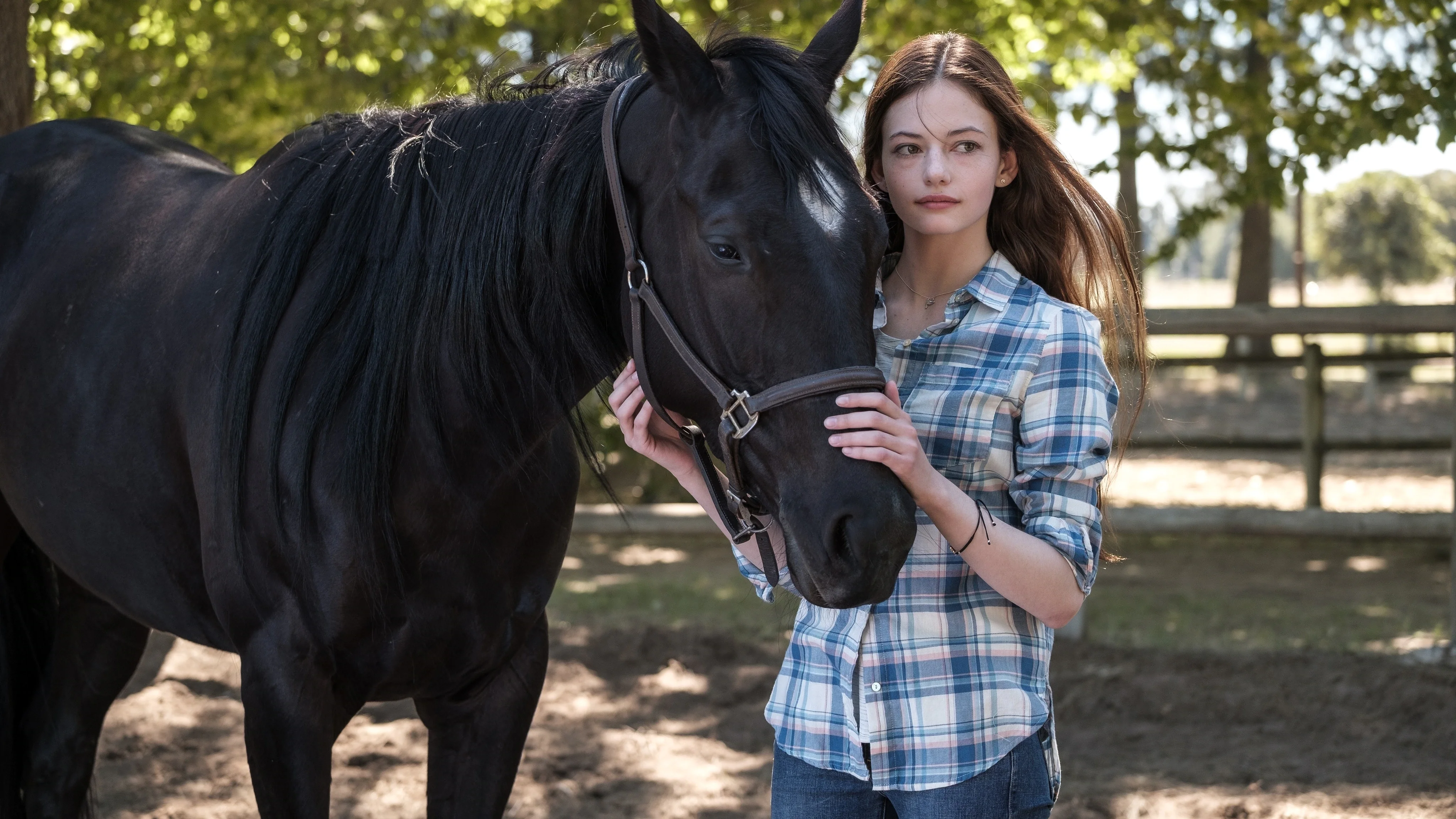Black Beauty review: Perfect for horse girls, not so much for anyone else
To those whose bedroom walls were never adorned with photographs of wild, galloping herds, the film reads as pretty, but emotionally vacant

Your support helps us to tell the story
From reproductive rights to climate change to Big Tech, The Independent is on the ground when the story is developing. Whether it's investigating the financials of Elon Musk's pro-Trump PAC or producing our latest documentary, 'The A Word', which shines a light on the American women fighting for reproductive rights, we know how important it is to parse out the facts from the messaging.
At such a critical moment in US history, we need reporters on the ground. Your donation allows us to keep sending journalists to speak to both sides of the story.
The Independent is trusted by Americans across the entire political spectrum. And unlike many other quality news outlets, we choose not to lock Americans out of our reporting and analysis with paywalls. We believe quality journalism should be available to everyone, paid for by those who can afford it.
Your support makes all the difference.Dir: Ashley Avis. Featuring: Mackenzie Foy, Kate Winslet, Claire Forlani, Iain Glen, Hakeem Kae-Kazim, Fern Deacon, Calam Lynch. PG, 109 mins.
Black Beauty, Anna Sewell’s wistfully romantic 1877 novel about the long and colourful life of a steed, is arguably the original horse girl book. And its latest adaptation, debuting on Disney+, has been finely tuned to keep that scrunchie-obsessed, denim-clad demographic satiated. It has everything they need: shots of horses running through fields in soft, Instagrammable shades; a semi-spiritual, equine-human bond; and a rigorous, impassioned stance against animal cruelty. At one stage, someone wisely notes that “horses are a window to your soul”. To those whose bedroom walls were never adorned with photographs of wild, galloping herds, Black Beauty reads as pretty, but emotionally vacant.
Writer-director-editor Ashley Avis has not only modernised its story, but switched up crucial details. Black Beauty’s action has been shifted from England to the United States. The protagonists, both horse and owner, were male in the book, but are now female in Avis’s film. Here, Black Beauty is a mustang, taken from the wild and separated from her mother, only for a craggy but kind ranch hand John (Iain Glen) to come to the rescue and train her up for adoption. When his niece Jo (Mackenzie Foy), whose parents have died suddenly, comes to live with him, she finds herself drawn to the wild horse – since both have transformed their grief into a kind of stubborn independence.
There’d be value in turning Sewell’s book into a flashy piece of feminist empowerment if it weren’t so intrinsically odd to try and draw comparisons between a wild girl and a wild horse, especially since the film’s heroes spend so much time trying to tame (or “break”, though Jo insists on calling it “partnering”) the latter. There’s a hidden, not-so progressive subtext to the scene where John whispers “thank you” after a productive conversation with his sullen niece – the same words he repeats to his horses every time they’ll tolerate the saddle or the bit.
Black Beauty is so fixated on this duality of girl and horse that it can’t figure out who the real protagonist is. Beauty narrates her story in the voice of Kate Winslet, who speaks in ASMR-triggering half-whispers using a starchy American accent. But the film runs out of drive after the eighth or ninth shot of a horse running and bucking, as Avis does her best to hastily edit them together into some semblance of recognisable emotion. And so the attention inevitably drifts towards Jo, who Foy has made as wispy and aspirational as possible, with her sketchbook and her own long, shiny mane of hair. Avis throws in a love interest – an aristocratic, though quite dull, English boy (Calam Lynch) who’s brother to one of Beauty’s long line of owners, the Veruca Salt-like terror Georgina (Fern Deacon). In fact, every other female character, including Georgina’s shrill mother (Claire Forlani), comes off as a cantankerous mean girl – it’s a lazy way to reinforce Jo’s own dreamy purity.
The narrative doesn’t quite know what to do with itself once Jo and Beauty are separated, and the horse ends up with a string of different owners. Black Beauty’s final quarter becomes a parade of suffering – both unintentional, as she undertakes dangerous rescue missions with a park ranger (Hakeem Kae-Kazim), and intentional, as she’s brutalised while pulling carriages in New York City’s Central Park. But Beauty yearns only for Jo – the film feels empty when it’s not just a girl and her horse.
Join our commenting forum
Join thought-provoking conversations, follow other Independent readers and see their replies
Comments